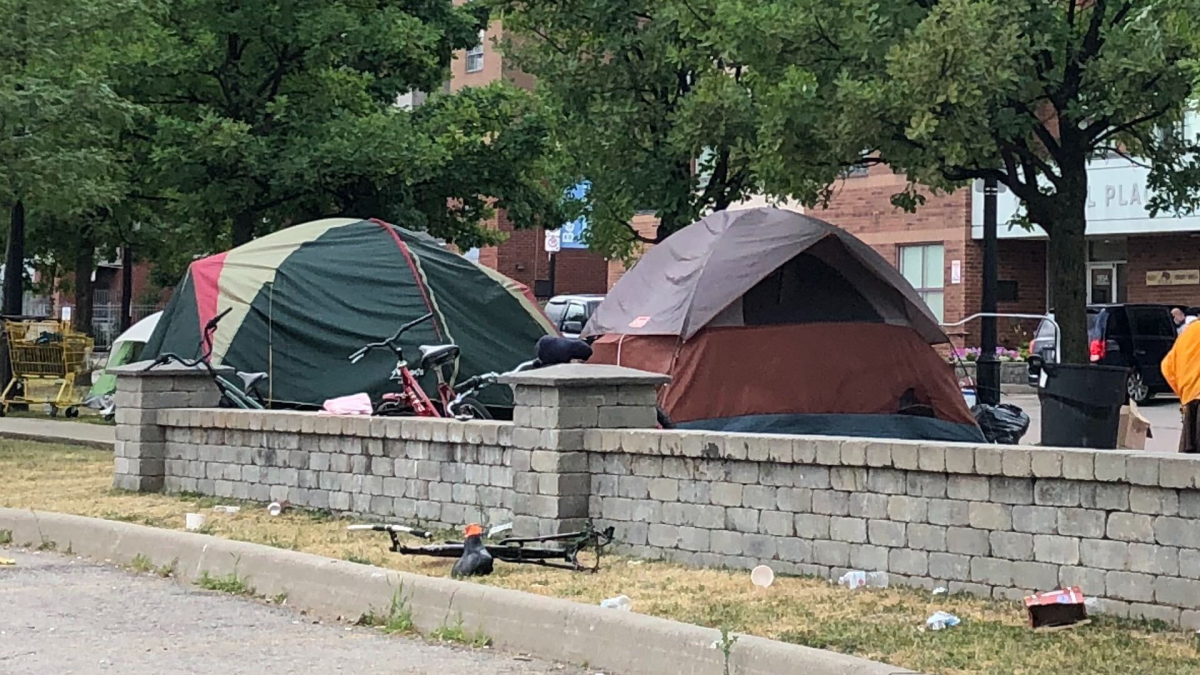A superior court judge has ruled against a group of homeless residents seeking a permanent injunction to stop the City of Hamilton from potentially dismantling dozens of small encampments in parks the latter claimed to be unsustainable.

In the 76-page decision, Justice Andrew J. Goodman acknowledged that homelessness was a “tragedy in Canada” but said evidence brought forth by counsel at the hearing demonstrated the city “continues to undertake reasonable steps in order to make available safe shelter space and accommodation.”
“This case involves important, complex, and challenging social, economic and policy questions affecting homeless and marginalized members of the community” Goodman said.
“There are no easy solutions.”
Over two days, on Oct. 21 and 22, Goodman heard verbal arguments from counsel using written testimony from the likes of doctors, residents and outreach staff connected to the encampment issue.
With the decision, the city said in a statement it would be resuming enforcement of park bylaws.
“The city aims to continue upholding this bylaw in a way that is respectful and supportive to all involved,” the release said.
“The enforcement approach will continue (to) take into consideration the safety and well-being of individuals experiencing homelessness, as well as the broader community needs, including access to green space for safe outdoor recreation.”
Downtown (Ward 2) councillor Jason Farr said he appreciated Goodman’s “careful scrutiny” of a situation the justice described as “a matter of great public interest.”
“The exponential growth of encampments comes with unprecedented increases in concerns shared by scared and upset residents,” Farr said in a statement to Global News.
“Those concerns are real and I believe the judge understood this among other import factors as it relates to the law.”
A small number of homeless residents represented by the Hamilton Community Legal Clinic (HCLC) returned to a courtroom on Oct. 21 seeking the injunction to stop Hamilton enforcing a parks bylaw based on a human rights claim.
Under the rules, the city can issue trespass notices and if not complied with occupants can be removed by Hamilton police.
The HCLC said in a statement after the decision it was “disheartened” with the result.
“This segment of the population will now be left to sleep outside in harms’ way, without the use of a tent to shield them from the harsh elements,” the agency said.
“Some will move further off the grid and into hiding, disconnecting from vital supports like medical and street outreach.”
The Hamilton encampment support network said in a social media post that the decision on Tuesday came as “no surprise” and that the protocol was “never a solution.”
In a Twitter post prior to the ruling, the network claimed the city was jeopardizing the lives of encampment residents saying they’ve been provided with “no suitable alternatives.”
“The existence of this protocol only provides residents with notice to move and parameters by which the city will engage in the removal of their homes, belongings and the dismantlement of their communities,” a spokesperson said.
Meanwhile, Dr. Tim O’Shea, who works with the homeless, also expressed his displeasure with the ruling on social media suggesting the encampment residents were “inconvenient to development and ‘tax payer’ interests.”
“What it does do is allow the city to continue to sweep this issue under a rug, to push people out of public space, and to continue to claim that people without shelter are somehow to blame for their own circumstances,” O’Shea said on Twitter.
Last Thursday, city lawyer Michael Bordin argued the encampment residents could take advantage of several outreach programs and insisted those efforts which shelter and place residents in temporary and permanent housing do not cause “irreparable harm,” as suggested by homeless supporters.
Counsel argued that the installations in city parks were causing tens of thousands in damage to trees, grass and other permanent structures in addition to propagating safety issues, unauthorized use of electricity and calls to clean up discarded needles and drug paraphernalia.
He also went on to argue that encampments create a “secondary shelter” system which “undermines” and draws money away from the city’s current sustainable housing program.
However, counsel for the applicants suggested the city has not created any new shelter space for the homeless, citing recent dates in mid-October when the director of housing services stated the system didn’t have enough beds on a given night.
The representatives went on to say COVID “exacerbated” the city’s homeless situation and that as uncomfortable as encampments are for those living in them, it is an opportunity to evade “psychological harm.”
As of Nov. 2, the city says there are 507 emergency shelter beds in Hamilton.








Comments